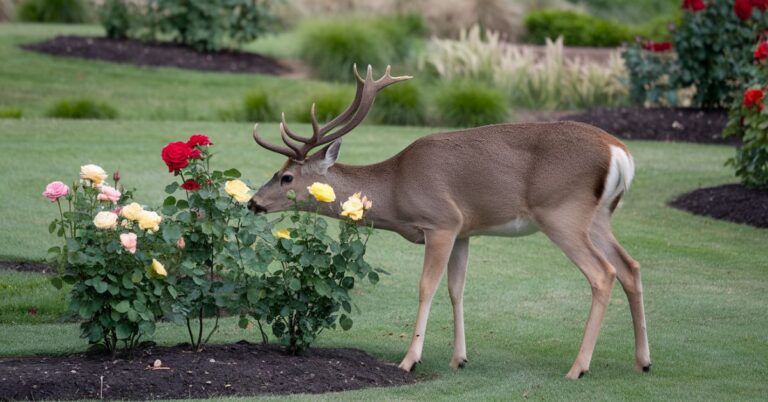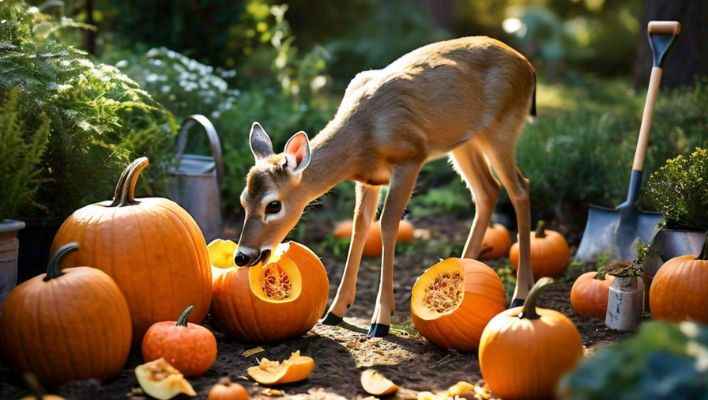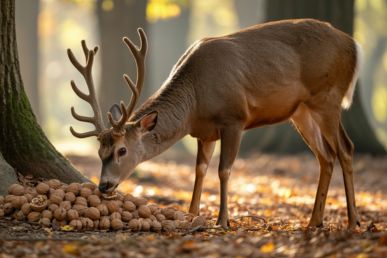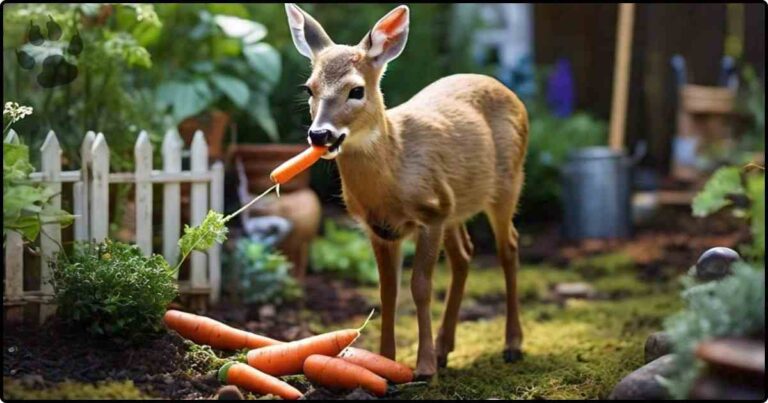Do deer eat pansies? Shocking Truth Gardeners Must Know
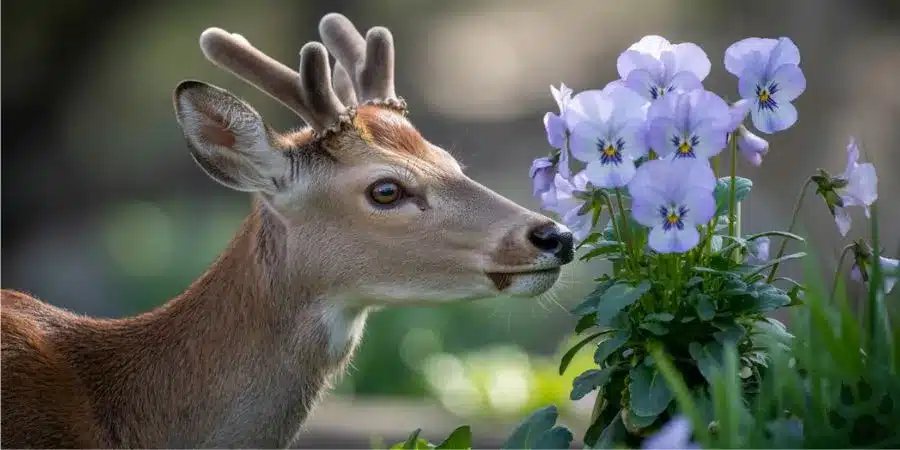
If you are thinking about planting pansies in your garden, but on the other hand, there is a deer population near your home, then one big question that will surely come to your mind is: Do deer eat pansies?
So yes, deer and rabbits can eat pansies. These flowers also taste great and have nutrients that attract deer. These animals mostly eat pansies during the spring or summer.
During the growing season, deer have many more flavorful and better food options than pansies. During this season, the chances of a deer attacking pansies are very low.
This article will tell you in detail whether deer eat pansies or not, and if so, what the reasons might be. In addition, how you can protect your garden from deer attacks and which flowers are safe from deer attacks, and which ones you can easily plant in your garden.
Why do deer eat pansies?
Pansies are nutritious, which is why deer often enjoy eating them. In addition, they contain some things that deer can use to stay healthy, such as water, natural sugars, protein, and other important nutrients.
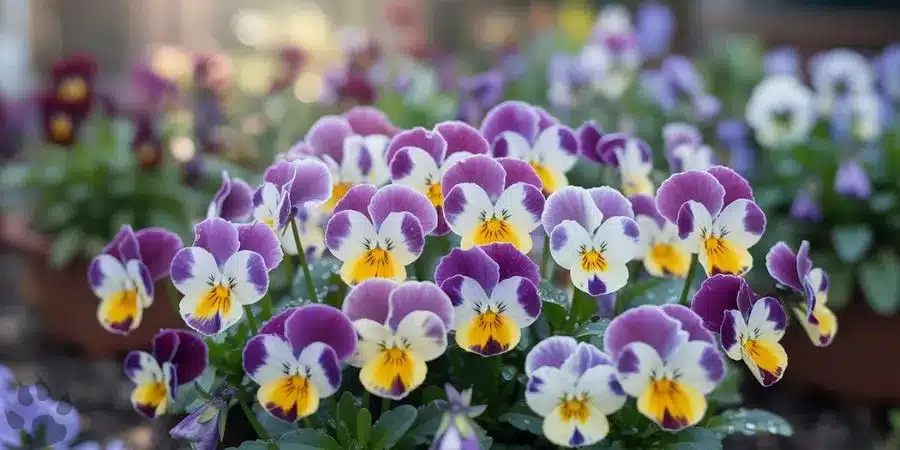
The time immediately after winter or during the early growing season is when deer are hungry and need some nutritious food to help them recover from the cold months.
During this time, the bright flowers and healthy green leaves of the pansies attract deer, who will attack them in a hungry state.
The short point is that deer are not attracted to pansies because they are beautiful, but rather, they need them, and they are one of the best food sources for deer.
As the seasons change, deer also change their food. While searching for food, deer generally consider two things: one is that the food should be easily available to them, and the other is that the food should provide them with nutrition at that time.
When spring and summer begin, deer generally prefer soft, new growth, and they choose young pansies during this time because it is fresh and tender, which attracts deer.
Then comes the autumn season, during which natural food such as grass and leaves is scarce, and at this time the deer can eat whatever plant it finds, be it a flower, a fruit, or even a vegetable.
Why does a beautiful garden attract more deer?
Deer are not picky eaters, meaning they eat whatever is available to them. This behavior requires gardeners to be very careful because deer can target any plant in a garden at any time.
Cornell Chronicle reports that a single deer can eat about 6 to 8 pounds of forage per day and approximately four million tree saplings a year.
Imagine how much more damage would be done if a group of deer attacked your yard instead of a single deer.
If you water and fertilize the plants in your garden well and take care of them regularly, this can attract deer to your plants because these types of plants will obviously be healthy and tasty, which deer will not hesitate to eat.
So the only thing to understand is that the better your garden looks, the greater the chances of deer attacking it.
Do deer eat pansies more than other common garden flowers?
Yes, deer do eat pansies more often than some flowers, but less often than others — it all depends on what you compare them to. By the way, pansies are on the deer’s menu, but they don’t like them very much.
But deer prefer pansies more than deer-resistant plants like daffodils. But deer prefer pansies less than tulips and hostas, and even roses.
Different universities help rate which plants deer eat, and here’s what their ratings show:
-
Rutgers University says pansies are rated “C: Occasionally Severely Damaged”, meaning deer sometimes cause significant harm.
Tulips and hostas are rated “D: Frequently Severely Damaged” — deer eat them a lot.
Daffodils get an “A: Rarely Damaged” — a nearly deer-proof flower choice. - Cornell University also rates pansies as “occasionally damaged”, and marks daylilies, tulips, and hostas as “frequently damaged”.
Are there specific colors or varieties of pansies that deer avoid?
No, there’s no proof that deer avoid certain colors or types of pansies. Research and gardening experts say that deer will eat pansies no matter the color — whether they’re purple, yellow, white, or any other shade. There’s also no specific variety or special kind of pansy that deer are known to leave alone.
Are pansies deer-resistant?
As I mentioned earlier, animals like deer and rabbits enjoy eating pansies, which indirectly means that pansies are not truly deer-resistant. Minda Daughtry even called Pansy “Dear Candy” in one of her articles.
However, don’t worry; if deer eat pansies, they grow back very quickly, and most people restore them to health with proper care. Sometimes deer can attack the pansies and cause serious damage, but this does not necessarily happen every time.
It depends on several factors, such as the deer’s hunger level or the availability of its preferred food sources.
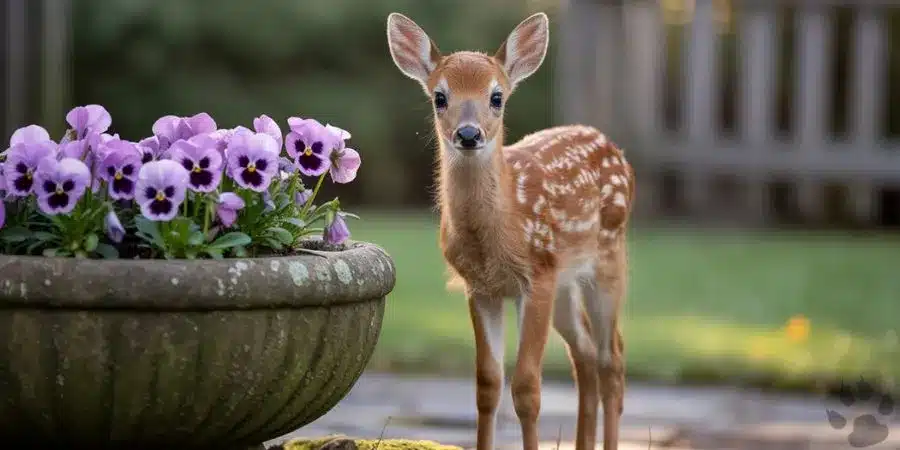
How to keep deer away from pansies?
To protect your pansies from animals like deer and rabbits, you will need to take steps to not only make it difficult for deer to eat these plants but also to make them less attractive to them.
It is often observed that animals like deer and rabbits avoid going to places where people often go, so my advice is to try to plant pansies where you often go, for example, near the door or next to the walkway.
Another method is to grow the pansies in pots or hanging baskets, and these baskets should be out of reach of these animals. If these animals are not tall enough to reach these baskets, this method can play an important role in keeping deer away from the pansies.
You can also use some sprays or strong-smelling substances around the pansies that animals don’t like. Using these can deter animals from coming near your pansies. Below are some more things you can use to deter deer from attacking your pansies.
Use Fencing the Right Way
Many people put a fence around their garden to protect it from deer attacks, and it is a fairly reliable method. But to install the fence properly, it is very important to keep in mind some of the following things:
Never build a fence shorter than 8 feet because it is not difficult for a deer to jump over it. In addition, it is important that the fence be buried about 12 inches (1 foot) into the ground so that deer or any other animal cannot enter your garden from underneath.
But even by putting up a fence, you cannot say that your garden is completely safe because an animal like a rabbit can enter your garden through any small hole in the fence and destroy your garden.
Using Physical Barriers
In addition to fencing, if you want to protect small areas of your garden, you can use small physical barriers such as netting or chicken wire. These small barriers are especially useful for protecting young plants that are more attractive to deer.
So if you don’t have the budget to put up a fence around your entire garden, you can use these physical barriers to cover and protect certain plants. This method can be quite effective for protecting certain flowers of yours.
Natural Deer Repellents That Work
Natural repellents can also be effective in keeping deer away from pansies because deer do not like the smell and taste of the ingredients in these sprays, so they prefer to stay away from them.
You can also use these repellents around your pets and children because they contain natural ingredients that will not harm them.
How to Use:
Use these repellents mostly around the garden and especially on the plants you want to protect. Usually, the effect of these repellents lasts for about 30 days, but if there is heavy rain, you will have to reapply them because the rain can eliminate their effect, and it may not work well again after rain.
Planting Deer-Resistant Flowers
There are some plants that are called deer-resistant plants. If you plant these plants around your garden, deer will not like to be near them.
I can’t guarantee that they will stay away from your garden, but at least using these plants will make your garden less tempting for them.
The following are some plants that deer don’t like to smell. They also have strange textures and can even be poisonous to deer.
- Lavender – It has a strong scent that deer don’t like.
- Daffodils – These flowers are actually poisonous to deer and other animals, so they naturally avoid them.
- Marigolds – They give off a strong odor that many animals, including deer, want to stay away from.
Geraniums, for example, are another popular choice in many gardens due to their bright colors and mild resistance to deer. If you’re curious, here’s a detailed look at whether deer eat geraniums.
Just think, would deer like to enter your garden if the first barrier to entry into your garden consisted of these plants? Using these plants greatly reduces the chances of them coming into your garden.
Motion-Activated Devices
Suppose you have tried all the above methods, but still deer enter your garden. Then, you can scare the deer away from your garden by using Motion-Activated Sprinklers.
Essentially, the function of this device is that whenever a deer comes into view in your garden, as soon as the device senses movement, it sprays a powerful stream of water, which scares the deer and prompts them to flee.
This device is quite effective in preventing deer from coming into the garden without causing any harm.
Will pansies grow back after deer eat them?
If deer eat the pansies but still have some leaves left on the plant, it means your plants can grow back. Pansies are generally a strong and fast-growing plant and can easily re-establish themselves if deer do not attack them with full force.
If deer have caused minor damage to your pansies, you can fix it by taking some extra care. For example, watering it on time or fertilizing it, etc. But if a deer attack has uprooted the plant from the ground, then you will need to plant a new one.
To get your pansy plant growing well again, cut off the damaged parts and then just be patient and give it some time to grow. There is no need to worry, the pansy plant often recovers, and you can do this easily, but the condition is that it is properly cared for.
Conclusion:
Deer are a real threat to gardens, especially if you’re growing beautiful flowers like pansies, which they like to eat. By understanding why deer are attracted to pansies — like their nutrition, soft leaves, and seasonal availability — you can take better steps to protect them.
Some of the best ways to keep deer away include:
- Fencing, to block them out,
- Using repellents to make your plants smell or taste bad to deer,
- And strategic planting, like putting pansies in hard-to-reach places or mixing in deer-resistant flowers nearby.
Using a combination of these methods can help you create a garden that’s less appealing to deer, so you can enjoy your pansies without constant worry.




